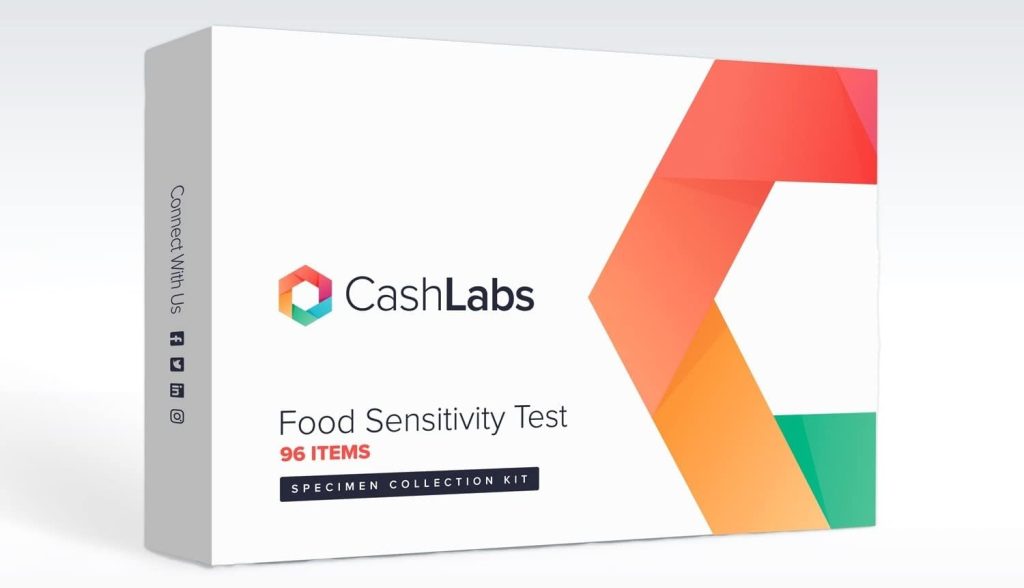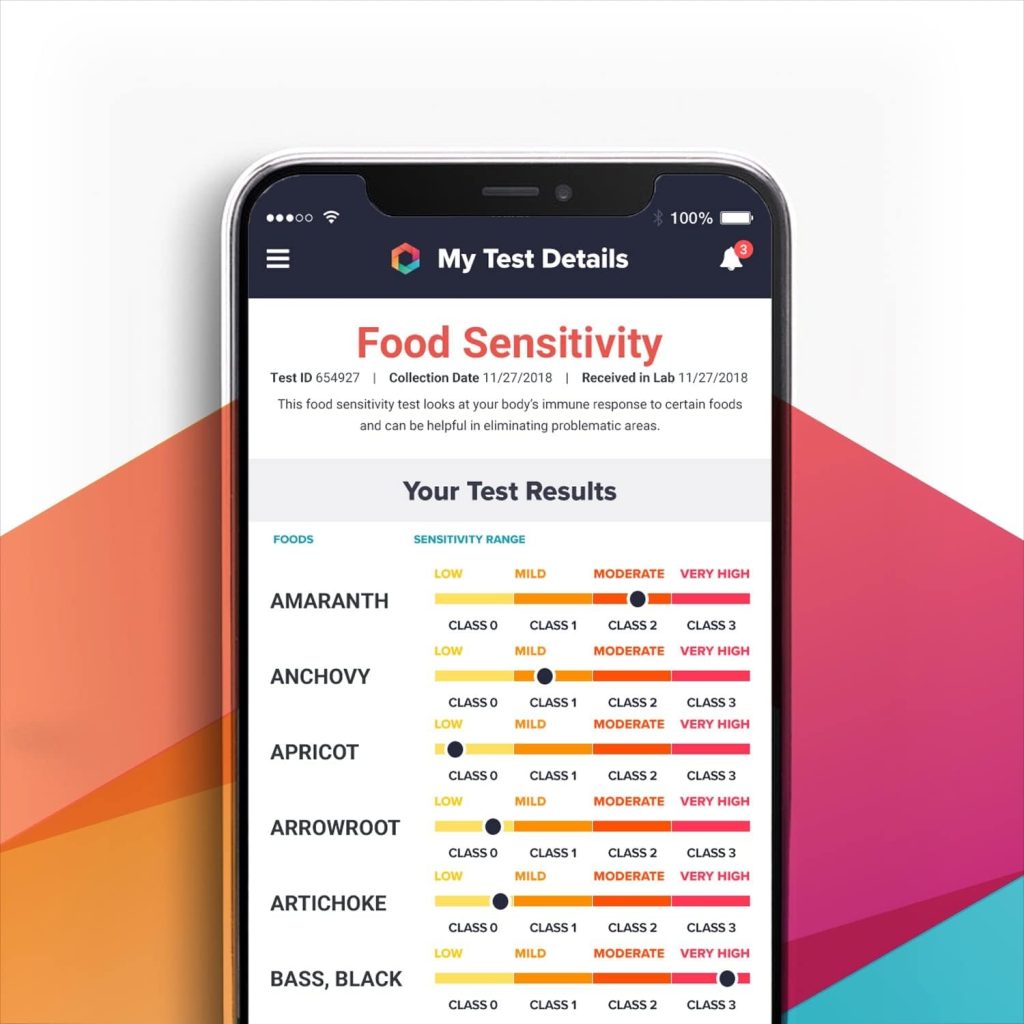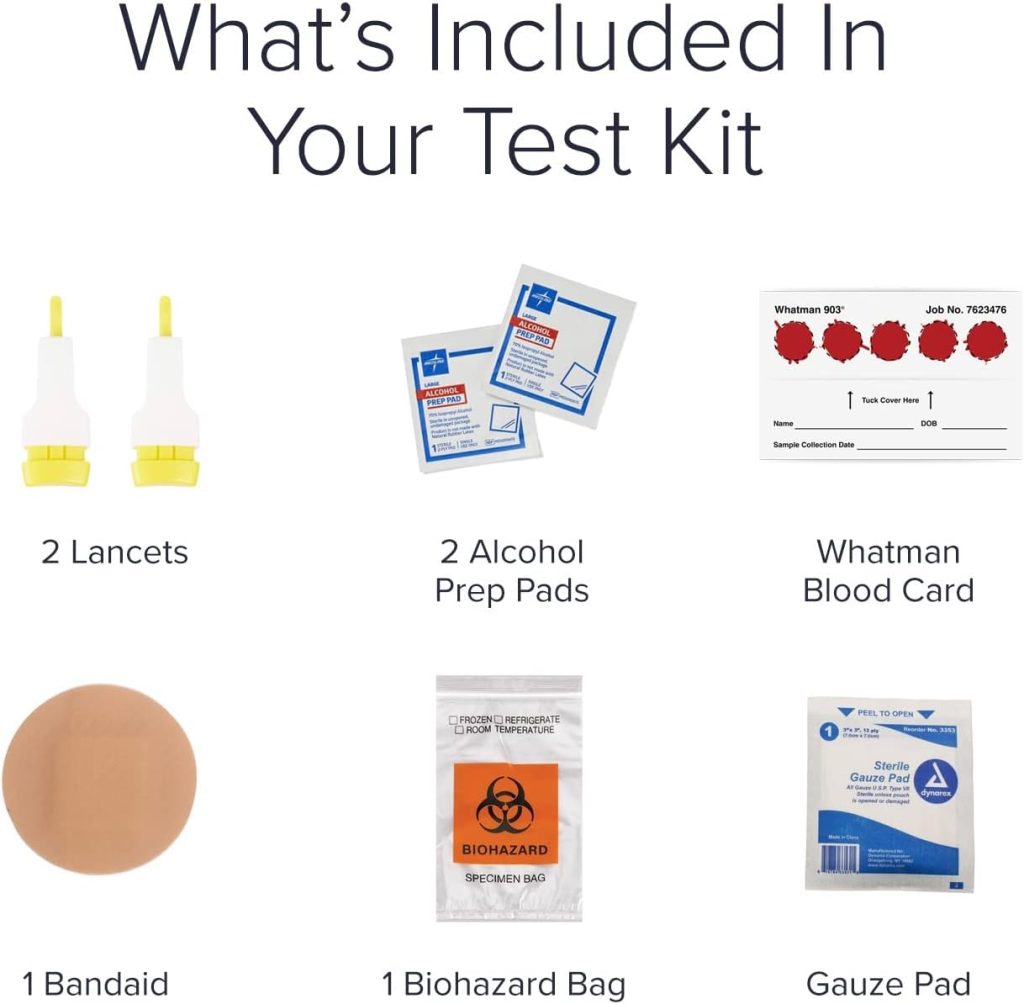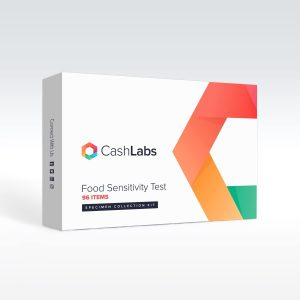
Introduction: CashLabs Food Sensitivity Test
Understanding the intricacies of food sensitivity and effectively identifying dietary triggers has become a pivotal aspect of contemporary healthcare. CashLabs, a prominent player in the realm of diagnostic solutions, offers the CashLabs Food Sensitivity Test, which purports to uncover individualized food sensitivities, potentially leading to enhanced well-being.
This comprehensive review embarks on a journey to explore the efficacy, accessibility, and reliability of the CashLabs Food Sensitivity Test, shedding light on its potential to empower individuals in their quest for improved health.
Demystifying Food Sensitivity
Food sensitivity, often referred to as non-allergic food hypersensitivity, is a health concern that affects a significant portion of the population. Unlike food allergies that trigger immediate and severe immune responses, food sensitivities typically involve more subtle immune reactions or non-immune mechanisms. Symptoms can be varied, delayed, and chronic, encompassing digestive distress, skin conditions, headaches, and more.
Discerning food sensitivities can be daunting since the culprits are not always apparent, and individuals may not even be cognizant of their triggers. It is within this context that the CashLabs Food Sensitivity Test emerges as a potential solution to this perplexing problem.
Unparalleled Accessibility and Convenience: CashLabs
A standout feature of the CashLabs Food Sensitivity Test is its unmatched accessibility. In contrast to traditional medical tests that necessitate visits to healthcare facilities and appointments for laboratory tests, this test is designed to be conveniently executed in the comfort of one’s home. The procedure is straightforward, requiring a mere finger prick to collect a blood sample. This simplicity obviates the need for invasive, time-consuming procedures, rendering the test accessible to a broad spectrum of individuals.

CashLabs: Cutting-Edge Technological Advancements
CashLabs leverages cutting-edge technology to analyze the provided blood sample. The analysis encompasses a wide array of biomarkers, including IgG antibodies1 and various immune system indicators. This comprehensive approach aims to discern potential food sensitivities, offering a holistic understanding of an individual’s unique sensitivities.
Swift Results
One of the primary concerns when embarking on the path of food sensitivity testing is the duration required to acquire results. CashLabs addresses this concern by offering a rapid turnaround for their test results. In a matter of days, individuals can access their personalized reports, facilitating prompt adjustments to their dietary choices.
Interpreting the Results
Upon receipt of the results from the CashLabs Food Sensitivity Test, individuals are presented with a meticulously detailed report delineating their specific sensitivities. The report categorizes various food items into distinct reactivity levels, ranging from high to low. This categorization empowers individuals to make informed decisions concerning their diet and lifestyle.
Tailored Dietary Guidance
The test report goes a step further by providing personalized dietary guidance. It highlights foods that are best avoided or consumed in moderation, as well as those that are deemed safe for consumption. This tailored approach alleviates the guesswork associated with managing food sensitivities, assisting individuals in making choices congruent with their unique requirements.

Potential CashLabs Benefits
The primary objective of the CashLabs Food Sensitivity Test is to aid individuals in isolating potential triggers of their discomfort. By adhering to the suggested dietary adjustments, individuals may experience a reduction in their symptoms, which can encompass bloating, skin issues, and digestive problems.
Reliability and Efficacy: Unraveling the Complexities
Reliability stands as a pivotal factor when evaluating any diagnostic test, and the CashLabs Food Sensitivity Test has been a topic of intense scrutiny in this regard. It is crucial to recognize that while the test furnishes valuable insights, it may not offer a one-size-fits-all solution.
Food sensitivity tests, including those from CashLabs, have elicited discussions and debates within the medical community. Some experts assert that tests, like CashLabs’ IgG antibody-based offering, may limit the accurate diagnosis of food sensitivities. Factors like the diversity of individual responses and the potential for false positives and negatives must be reckoned with when interpreting the results.
The Vital Role of Healthcare Professionals
Incorporating healthcare professionals into the process is an indispensable aspect of the CashLabs Food Sensitivity Test. While individuals are capable of ordering and conducting the test autonomously, consulting with a healthcare provider is highly recommended. Healthcare professionals bring valuable insights into the interpretation of the results and the formulation of appropriate dietary adjustments.
Realistic Expectations
Managing expectations is paramount for individuals contemplating the CashLabs Food Sensitivity Test. The test serves as a tool for identifying potential sensitivities, but it should not be misconstrued as a definitive diagnostic instrument. The results provide guidance and insights but may need to be supplemented with clinical evaluation and additional testing to obtain a comprehensive understanding of food sensitivities.
Ethical and Privacy Considerations
The CashLabs Food Sensitivity Test involves the collection of personal health data, raising significant ethical and privacy considerations. It is imperative to ensure that the company adheres to stringent protocols for data security and privacy. Individuals must be well-informed about how their data is handled, stored, utilized, and shared, fostering transparency and trust.

Cost and Accessibility: Weighing the Investment
While the CashLabs Food Sensitivity Test offers convenience and expedited results, it is essential to contemplate the associated cost. Individuals should assess the value of the test in relation to their budget. Moreover, the accessibility of the test may vary depending on geographic location. Prospective users should ascertain if the test is available in their region.
The Path Forward
The CashLabs Food Sensitivity Test is a promising tool for individuals seeking to identify and manage their food sensitivities. Its accessibility, utilization of advanced technology, and swift results render it an attractive option for many. However, it is imperative to approach the test with realistic expectations. The participation of healthcare professionals, ethical considerations, and the financial implications of the test should all be considered when contemplating its use.
As the landscape of food sensitivity testing continues to evolve, it is likely that new diagnostic methods and technologies will emerge. To enhance the accuracy and reliability of such tests, ongoing research is vital, ultimately providing individuals with more precise insights into their dietary triggers.
Pros and Cons of Home Lab Tests:
Pros
- Convenience: Home lab tests provide unparalleled convenience. Individuals can collect samples and perform tests in the comfort of their homes, eliminating the need for clinic or laboratory visits.
- Privacy: Home lab tests offer a level of privacy that traditional clinical tests may not. People can conduct sensitive tests without the discomfort of discussing personal health matters with healthcare professionals.
- Quick Results: Many home lab tests provide rapid results. This speed can be crucial for early detection or monitoring of health conditions, enabling timely interventions.
- Cost-Effective: Home lab tests are often more cost-effective than in-person clinical tests, as they eliminate the need for medical appointments, transportation, and other associated expenses.
- Monitoring Chronic Conditions: Patients with chronic conditions can regularly monitor their health at home, reducing the frequency of clinic visits and potentially improving their quality of life.
Cons
- Limited Diagnostic Scope: Home lab tests are typically designed for specific purposes, and their diagnostic scope may be narrower than what a healthcare professional can provide. They may not offer a comprehensive evaluation of a person’s health.
- Risk of User Error: Performing home lab tests requires careful adherence to instructions. User error can lead to inaccurate results, potentially causing unnecessary concern or missing actual health issues.
- Lack of Professional Interpretation: Home lab test results are often delivered without the benefit of professional interpretation. This can lead to misinterpretations of results and inappropriate actions based on those misinterpretations.
- Quality and Reliability: The quality and reliability of home lab tests can vary. Some may not meet the same rigorous standards as clinical tests, potentially leading to unreliable results.
- False Sense of Security: Relying solely on home lab tests may give individuals a false sense of security. Some conditions may require more comprehensive clinical evaluations than these tests can provide.
- Inability to Address Complex Conditions: Home lab tests are suitable for straightforward assessments, but they may not address complex or multifaceted health conditions that require a broader clinical context.
In summary, home lab tests offer undeniable benefits in terms of convenience, privacy, and cost-effectiveness. However, their limitations, including potential user error, lack of professional interpretation, and restricted diagnostic scope, must be considered. These tests can be a valuable tool for monitoring health and detecting certain conditions, but they should not replace comprehensive medical evaluations when needed.
Conclusion: CashLabs Food Sensitivity Test
In conclusion, the CashLabs Food Sensitivity Test offers a convenient and accessible avenue for individuals seeking to uncover potential food sensitivities. Its advanced technology and rapid results are attractive features, but it is critical to approach the test with pragmatism. While the test bestows valuable insights, it is not a standalone diagnostic instrument and may need to be supplemented with clinical evaluation when necessary.
The CashLabs Food Sensitivity Test empowers individuals to make informed dietary choices, potentially resulting in a reduction of symptoms and an enhancement of overall well-being. Nonetheless, we must actively acknowledge its limitations. We also need to recognize the necessity for further research in food sensitivity testing, actively refining and enhancing diagnostic accuracy to benefit all individuals striving to optimize their health.
As the field of food sensitivity testing progresses, individuals can anticipate more precise and reliable methods for deciphering their unique dietary triggers, ultimately contributing to better health and well-being.

If you enjoyed this article, please take a look at my most recent Expert Health Material Podcast review: Huberman Lab Podcast: The Brain and Its Connections

Systems Engineer > Project Manager > Tech Entrepreneur > Health Consultant > Website Specialist